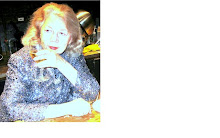
www.filmkommentaren.dk/blog/blogpost/1673/
Jan Andrews' JOSEPH BRODSKY
by Artists of Utah / 15 Bytes on Monday, October 18, 2010 at 11:16pm
Joseph Brodsky: In the Prison of Latitudes
a film by Jan Andrews
reviewed by Geoff Wichert
In 1963, Joseph Brodsky was arrested by the KGB. While most Americans were probably too distracted that year by the arrest in Alabama of civil rights activist Martin Luther King, the ominous news of 80 American deaths in Vietnam, or the assassination of a president, to have noted the travails of a twenty-three year old Russian poet, this event, seven swift minutes into Jan Andrews' brief-but-riveting video portrait, marks the beginning of Brodsky’s career in the same way that a hit album, best-selling book, or breakout film or TV role might mark the beginning of an American career. The difference between them—doom for the one, unimaginable wealth for the other—sets the theme of the film and establishes as ironic how Brodsky, nearly half a century later, can be seen to have prospered compared to so many western poets who, after cautiously or enthusiastically welcoming him to his exile in the United States in 1972, remained obscure while honors were heaped upon him, including a McArthur “genius” grant, the Nobel Prize in literature, and the Poet Laureateship of the United States.
In the 1970s, the American literary scene had yet to emerge from the pernicious influence of the perennial avant-garde: the need felt by artists of every stripe to be constantly new, to rebel, and to break the rules. For Brodsky, who grew up in one of the few places at that time where being a poet—like his other crime, being a Jew—could and routinely did get a person not just jailed, but killed, this desire to toss out structures of poetry like rhyme and meter made no sense. It was enough to write truthfully— and, as one of his fellow poets said of him, as if there were no Soviet government—in which pursuit the formal conventions that had served Ovid, Sappho, Dante, and countless other exiled poets were, to him, clearly the wrong enemy. And so he wrote poetry that some of his contemporaries considered conservative and conventional. But there was also looming the threat of Postmodernist Literary Theory, which would muddy the streams of culture and language for decades, insisting that expressing anything more than subjective impressions was impossible, while the search for objective knowledge was futile. In those years a lot of poetry, like a lot of art, turned hermetic and became solipsistic. It was in the face of such tendencies that Brodsky wrote lines like these:
Life, that no one dares
to appraise, like that gift horse’s mouth,
bares its teeth in a grin at each
encounter. What gets left of a man amounts
to a part. To his spoken part. To a part of speech.
He means what we say, what we name, how we choose, not only matters, but it may finally be all that matters.
I began to watch Andrews' film with some anxiety about the whole idea of poetry on film. Poems need to be read aloud, to be heard, and on the page one can start over, move around the text, or repeat a line for clarity. In a film, though, pre-recorded words can decay into a numbing barrage of sound. Andrews provides a full sensual experience: the music and expression of the original, read in Russian at first, and later the exiled poet in his accented English, heard behind a written text, both accompanied by a third layer of images not meant to “illustrate” the poem, but rather to fuel its feeling with visual analogues. No good poem is exhausted by one encounter, but here the viewer gets enough of it, aided by some biographical context, to come away hungry for more. Best of all, for those who never lost faith in mimesis, a taste for representational content, and who believe that art is about something real, just as we are about something beyond ourselves, the life and work of Joseph Brodsky provides heroic proof of the irreducible importance of language. Andrews wraps up her portrait with a defense of words: Brodsky’s 1971 poem, Nature Morte, which concludes the film, begins: “Open mouth. It’s better to speak . . . .” And then she lets Brodsky do his own summing up: “All my poems are more or less about the same thing—about Time. About what time does to a man.” The art of film, unique in its ability to incorporate time, turns out to be a deeply sympathetic vessel in which to bring forth the achievement of this essential poet.
The director Jan Andrews: I do have DVD'S in English and Italian (eventually Russian) which can be ordered from me via my email address. $15.00 plus shipping.
shibui@sisna.com.


No comments:
Post a Comment